Liber Hermetis vel de rebus occultis
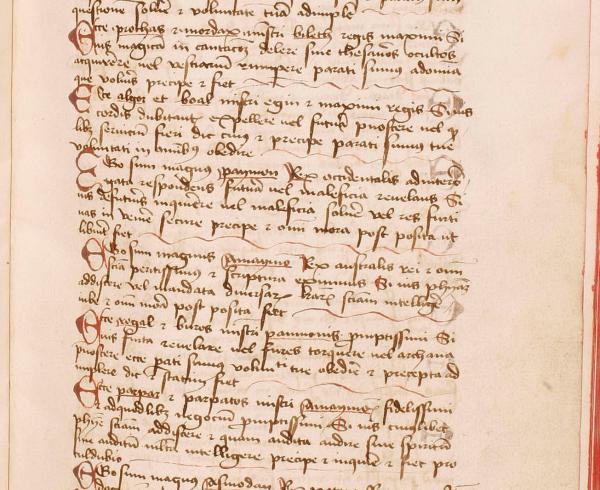
Liber Hermetis vel de rebus occultis
1400

Liber Hermetis vel de rebus occultis
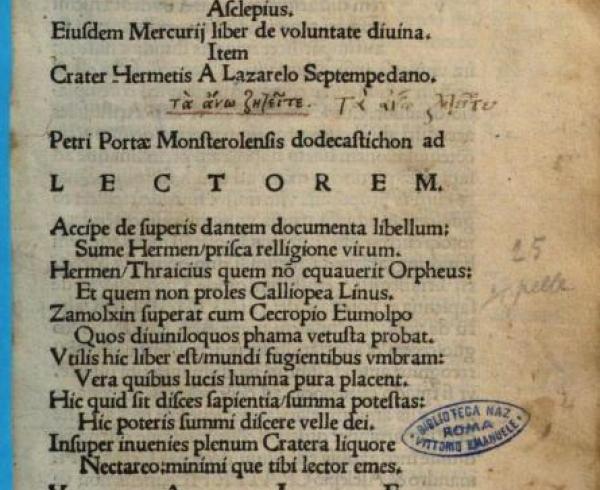
The De summa hominis dignitate dialogus qui inscribitur Via Christi et Crater Hermetis is a philosophical dialogue witten in prosimeter.
Lazzarelli plays the role of teacher and prophet. He shows his disciples, through a hermetic and Christian path, how to reach happiness and salvation.
The book includes some notions of astronomy and describes only the first phase of training in geomancy, with the definition of the figures but without providing further guidance to the learner on how to practice the art of divination.
The original version of the Iatromathematica consists of two slightly different Greek versions. The second one is the basis of the two Latin versions we have.
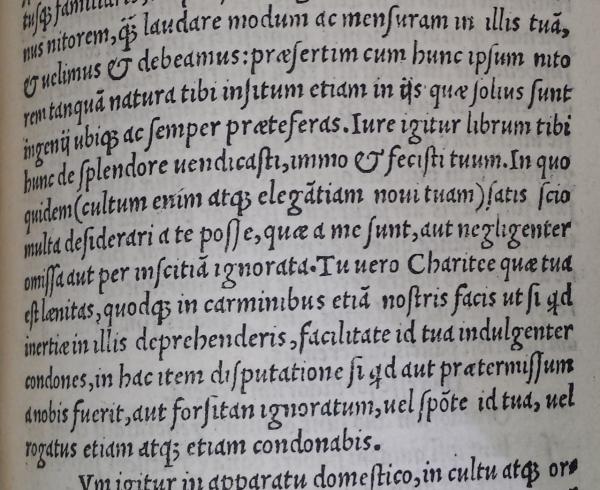
Ethical treatise on the virtue of splendor, written after the printing of the De principe, De obedientia and of the De fortitudine.

Philosophical treatise in five books dealing with the prudence as a civil virtue. In the text, the moral doctrine is part of a natural setting and man's behavior is seen as a reflection of physical characteristics.
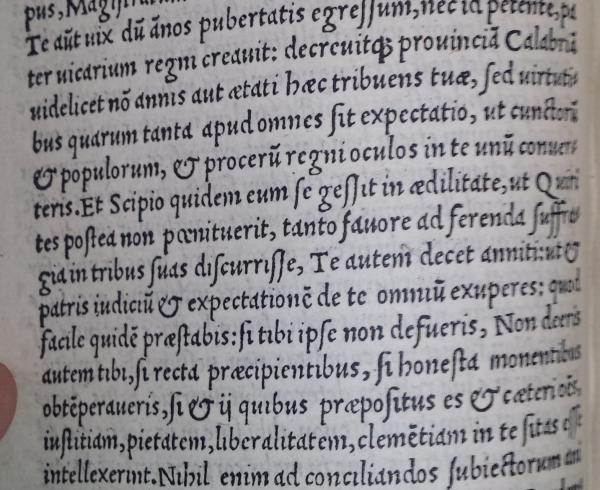
Ethical treatise written around 1468 for Alfonso of Calabria, the future sovereign of the Kingdom of Naples.

Ethical treatise in five books, written after the Civil Neapolitan War (1459-1465), which had raised the issue of the relationship between the political body and royal authority.

Ethical treatise on the virtue of grander, written after the printing of the De principe, De obedientia and of the De fortitudine.
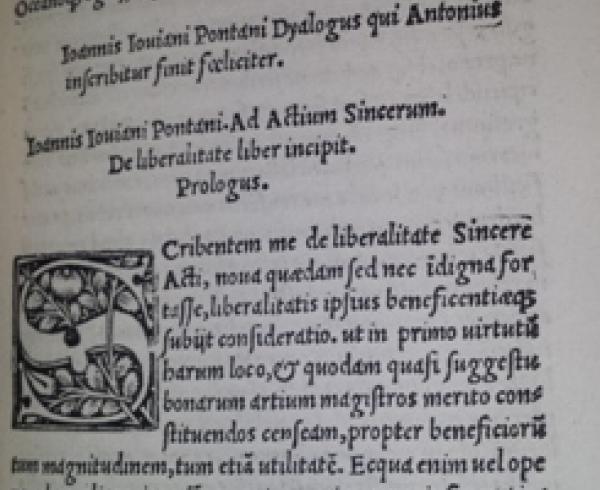
Ethical treatise on the virtue of liberality, written after the printing of the De principe, De obedientia and of the De fortitudine.
Ethical treatise in three books centered on the relationship between virtue and fortune, published by Pietro Summonte in Naples, in 1512, for the types of Sigismund Mayr.
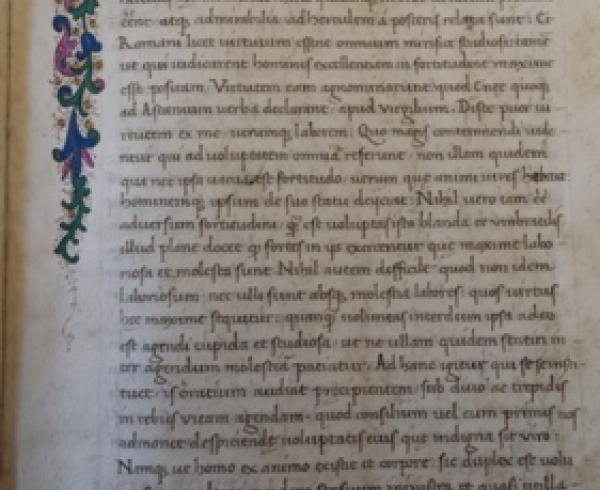
Treatise in two books written around 1480-1890. The text belongs to the first phase of the ethical-political production, which also includes the De principe and the De obedientia.
Ethical treatise on the behavior of the courtier, written after the printing of the De principe, De obedientia and of the De fortitudine.